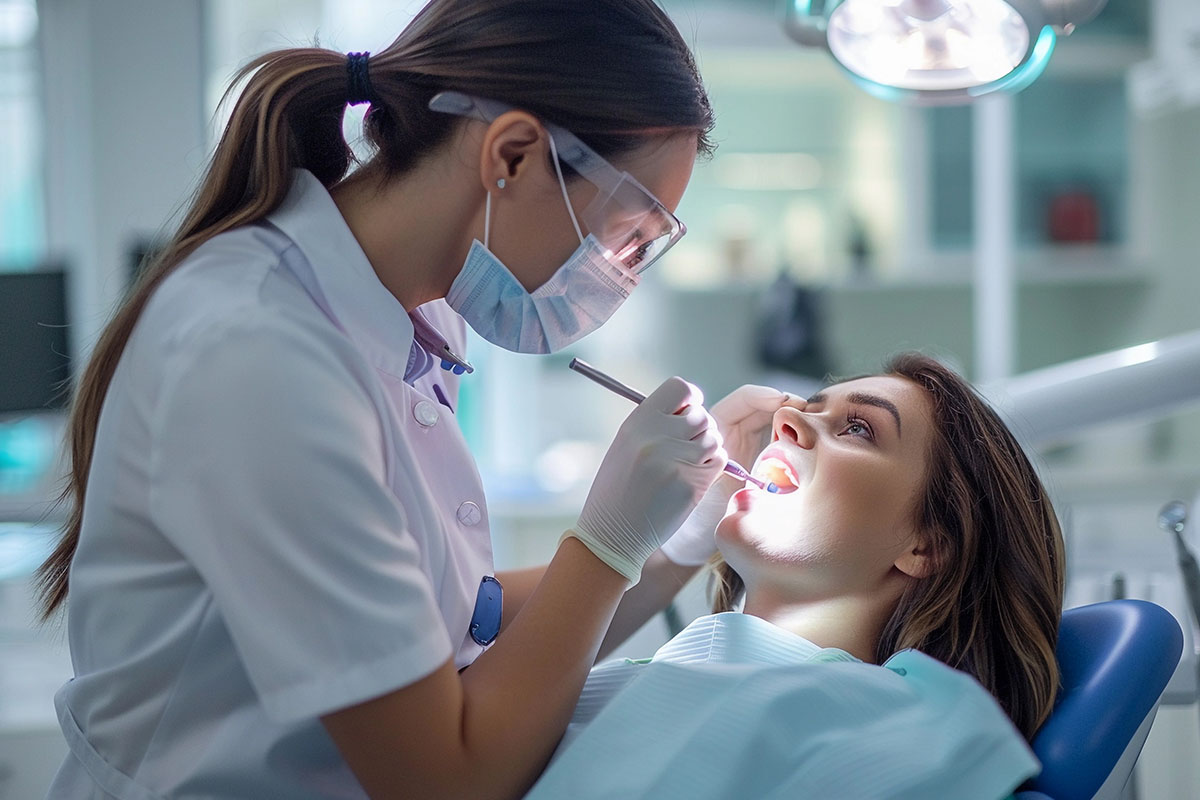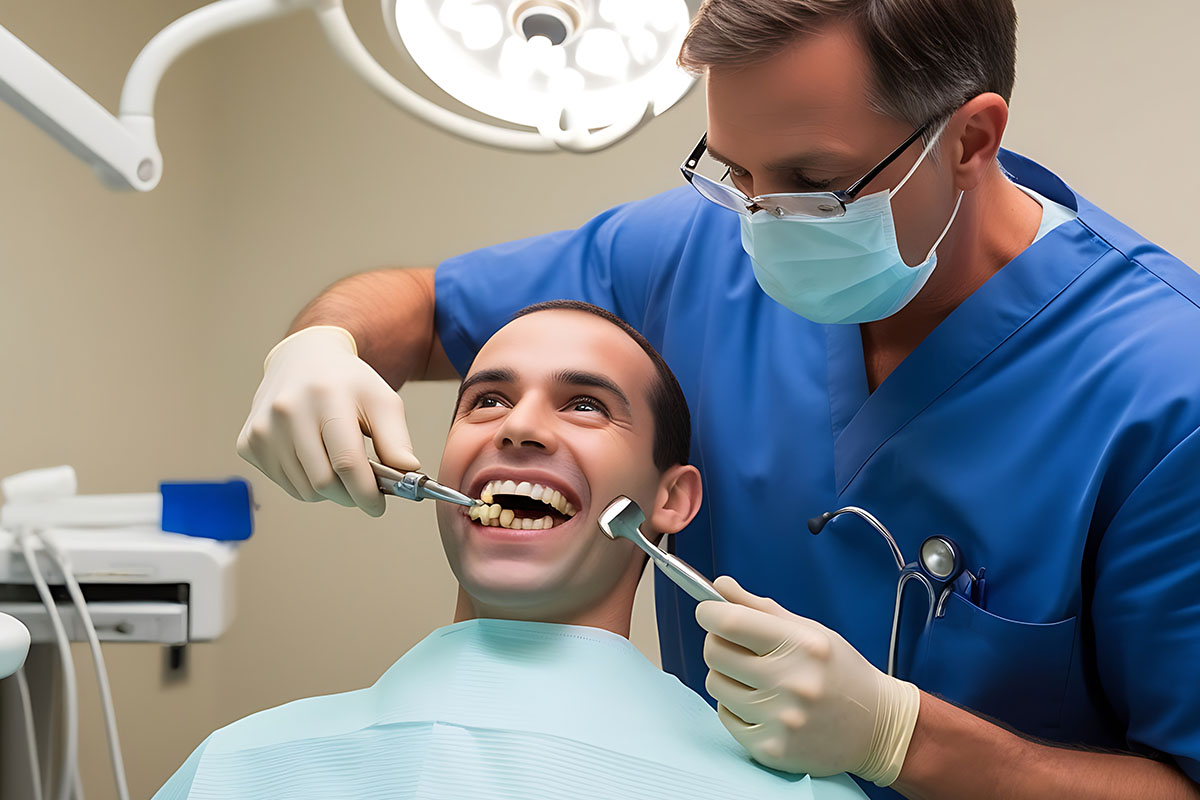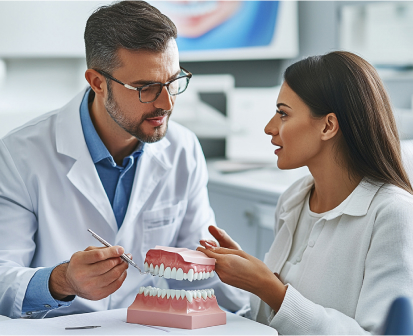




Peri Implants is a dental implant system using six strategically placed implants for a full arch of replacement teeth. Contact Ballpınar Dental Clinic for more info.
Peri-implantitis infection, a complication in dental implant treatments, is an often overlooked or under-recognized condition. It is important to seek immediate medical attention if you think you are at risk of peri-implantitis. Regular dental check-ups and meticulous oral hygiene are pivotal in preventing and mitigating peri-implantitis, ensuring the longevity and success of dental implants.

Peri-implant mucositis is an implant-associated gum disease that refers to inflammation of the soft tissues surrounding dental implants. Unlike peri-implantitis, mucositis doesn’t involve bone loss but demands immediate attention to prevent its progression.
Peri-implantitis, a potential setback in dental implant procedures, lurks as a concerning threat to oral health. According to a recent systematic review and meta-analysis, the estimated prevalence of peri-implantitis was 19.53% at the patient level and 12.53% at the implant level. This shows that peri-implantitis progression is a significantly common disease that needs more attention and research.
Causes of peri-implantitis often stem from a range of factors. Initially, it arises due to plaque buildup around implants, triggered by inadequate oral hygiene. Other culprits include smoking, pre-existing gum disease, and systemic conditions like diabetes, which compromise the body’s ability to combat infections. The combination of these peri-implantitis risk factors creates a perfect storm, leading to bone loss and its onset.
Early signs of peri-implantitis can be identified through redness, swelling, and bleeding around implants, often accompanied by gum recession and increased pocket depth. As it progresses, implant mobility and discomfort may arise. These nuanced peri implantitis symptoms are the silent sirens urging prompt intervention to salvage the implant’s stability and ensure a radiant smile endures.
Stages of peri-implantitis unfold in two distinct phases. First, peri-implant mucositis is marked by gum inflammation without bone loss. Without intervention, it progresses to the advanced stage, peri-implantitis, where inflammation deepens, causing bone deterioration around the implant. As the condition advances, it might reach a stage where the implant faces severe instability, jeopardizing its retention and risking overall oral health.
Peri-implantitis, in its early stage, is potentially reversible with prompt intervention. Diagnosing Peri-implantitis, and cleaning and regular monitoring by a professional can halt its progression and restore gum health. However, once it advances to peri-implantitis with bone loss, the condition becomes more challenging to reverse. While treatments aim to manage its effects, completely reversing bone loss might not always be achievable.
There are various peri-implantitis treatments for those looking to regain their oral health, such as:
Surgical solutions for peri-implantitis aim to address the advanced stages of this condition, which include:
This procedure involves lifting the gum tissue to access and clean the infected area around a dental implant to remove bacteria and diseased tissue.
This treatment for peri implantitis involves adding bone material to a deficient area around a dental implant to promote bone growth and support implant stability.
This treatment uses membranes, or barriers, to encourage new bone growth around a dental implant site by preventing soft tissue from invading the space needed for bone regeneration.
This procedure involves cleaning and disinfecting the surface of the dental implant to remove bacteria and biofilm, aiding in the treatment of peri-implantitis.
Surface cleaning techniques for dental implants involve various methods:
Chemical decontamination involves using antiseptic solutions or disinfectants to remove bacteria from implant surfaces.
Maintenance and follow-up care involves regular check-ups, professional cleanings, and ongoing oral hygiene practices to monitor dental implants and prevent further complications.
Regular check-ups are vital as they enable early detection of issues. These include:
Oral hygiene and peri-implantitis prevention start at home with daily practices like brushing, flossing, and using mouthwash to maintain the cleanliness and health of teeth and gums.
Preventing recurrence is crucial to avoiding the re-emergence of peri-implantitis and safeguarding the stability and longevity of dental implants.
Removing the implant becomes necessary in severe cases of peri-implantitis where conventional treatments fail, aiming to prevent further complications and preserve overall oral health.
Preventing peri-implantitis requires:
Long-term Management of peri-implantitis at home is limited, as professional intervention is typically necessary. Gargle your mouth using an antimicrobial mouth rinse for a decreased bacterial load.
Utilize interdental brushes or water flossers to access difficult-to-reach areas. Apply a warm saltwater rinse to soothe discomfort and reduce inflammation. However, these home interventions should supplement professional treatment, not replace it.
Connect with us to learn more about what peri-implantitis is.
We always take care of your smile
+90 532 454 98 80
The goal of our clinic is to provide friendly, caring dentistry and the highest level of general, cosmetic, and specialist dental treatments.
© My World Dental 2025 All right reserved.